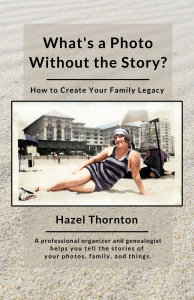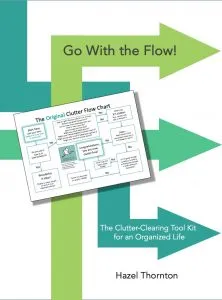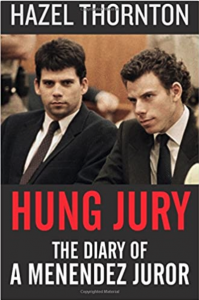Think of your big project as a new hobby

Lots of activities can be considered hobbies!
Do you have a big project you’ve been putting off?
Is it because you are waiting for the perfect time to devote your entire self to getting it done?
If you try to do too much at once, you risk getting overwhelmed and exhausted. Chances are you’ll get discouraged, go away, and never come back to it.
Got a big project? The more often you do something, the easier it gets. And hobbies are fun! So, try thinking of it as a new hobby. Share on X
It’s pretty easy to do fun projects like artwork, if you are an artist. Or, to read 50 books this year if you are an avid reader. But if decluttering your home doesn’t sound like fun (especially if there’s a big backlog), well, that can be daunting. Or, let’s say you want to organize your photos, but they are scattered everywhere and you don’t know where to start. Or, maybe it’s a project that is simultaneously fun AND overwhelming, like writing a book — ask me how I know!
Then there are projects that are truly never-ending, like genealogy research. There are always more branches to climb in your family tree!
Hobbies are fun!
So, here’s the thing: The more often you do something, the easier it gets.
Right?
And hobbies are, by definition, fun.
Right?
So, why not think of your big project as a new hobby?
Even fun new hobbies require that you learn new skills, and set aside time to practice them. The scheduling of regular time could be considered a new habit in and of itself, ala one of my favorite Zen proverbs:
Creating a habit is like walking through deep snow. At first it is really hard. But each time you walk that path, it gets easier. Eventually, it is easier to walk that path than to break a new one.
The more small, regular amounts of time you schedule for practicing your new skill, and for reaching your new goal, the more enjoyable it will become. For example, musicians often practice their instruments for an hour each day. They know that If they played for six hours one day and not again for three months, they would not make steady progress. If you work… er, enjoy your new hobby for a six hours this week, and not again for a three months, you will forget where you left off and it will seem hard again.
Make it easier
Here are some other things you can do to make it easier to complete a big project:
- Break it down into smaller, more do-able steps.
- Schedule regular time to work on it.
- Experiment with choosing the best time of day to work on it.
- Get clear about why you’re doing it.
- Use the right tools for the job.
- Find someone else to work with, either in person or virtually, ala Julie Bestry’s (aka Paper Doll’s) two recent posts about body-doubling.
- Ask for volunteer help, an accountability partner, or professional expertise if you need to.
Recurring theme
I’ve been writing a lot lately about big, but also potentially fun, projects that can seem daunting.
My 2021 book, What’s a Photo Without the Story? How to Create Your Family Legacy, is about telling the stories of your photos, family, and things. There’s no right or wrong way to do it, and I offer suggestions according to your choice of low effort, medium effort, or high effort. And, as I wrote:
You don’t have to do all the things! And you certainly don’t have to do them all at once. You will enjoy the journey more if you take it a step at a time. Think of it as a new hobby, rather than a one-and-done event.
In my 2023 book, Go With the Flow! The Clutter Flow Chart Workbook, I wrote something similar:
The decluttering process will be more fun if you treat it like a new habit, or even a new hobby. If you’re doing it on your own it might take a while, so do a little at a time and schedule regular decluttering sessions with yourself.
So, try thinking of your big project as a new hobby.
Because if you don’t enjoy it; and if you can’t make it more fun, or delegate it; and if you can’t even remember why you are doing it; you might want to re-think doing it at all.
What are YOUR thoughts?
Let us know in the comments below!
——————————————————————————————————
Copyright 2023 by Hazel Thornton, Organized for Life and Beyond
Hazel is an author, family historian, and retired residential organizer.
Feel free to link directly to this post! Click here to ask about other uses.
————————————————————————————-—————
Share this:







I always enjoy a helpful perspective reframe because, so often, our thoughts are what get in the way. I never considered holding “projects” up as hobbies, and this is an exciting twist. As you suggested, it brings in the fun factor, which can often be a driver for moving forward. Thank you for sharing this one.
Hi Linda, I’m glad you agree that a “fun factor…can often be a driver for moving forward”! You write about thoughts and ways to reframe them all the time…so important!
This really resonates with me. I’ve often added hobby-related tasks to my to do list to ensure I stay on top of them, but then it feels like a task to be completed instead of an activity to be enjoyed. It’s hard to find that balance, but I’m working on it!
Suggestion for hobby-related tasks: Unless it’s something like an errand, to be scheduled along with other errands…..or, say, a live class …..maybe try this: Schedule regular time to work on, er, I mean indulge in, your hobby but just label it Hobby, or the name of the hobby, or FUN, or Me Time on your calendar. (Don’t use the name of the hobby-related task(s).) Meanwhile, keep a running list of tasks related to your hobby. When the time comes, refer to your list. Think of it as a Menu of items to choose from. Some may be prioritized, or listed in preferred sequence, but others may be random choice because it doesn’t matter when you do them. Does this sound like something you’d try? (Or, have tried?)
This makes me think a lot about mindset. How we think about a situation greatly impacts how we experience it. If we tell ourselves that we are starting a new hobby, we will automatically have different expectations than if we we told ourselves we were setting out to complete an onerous tasks.
One tip I have when starting a new daily activity is to try not and overthink it for a predetermined period of time. For example, say you will sort through 20 photos a day for a month. Commit to this, and don’t allow yourself to reconsider. Just do it, like you eat every day. Once you reach your preset period of time, you will have the option of deciding if you want to continue, make adjustments, or quick. Most things in life require that we “give it a fair try” before we make decisions about whether or not it is worthwhile.
Seana, you are so right that we need to give things “a fair try” before giving up on them. Sadly, I see many of us not doing that a lot of the time. So, it’s no wonder we get discouraged!
This is a little bit (or maybe lots of bit) of genius. I always say I don’t have hobbies. I mean, yes, I read. And I study Italian. But I don’t create things (no knitting or painting) — or compete (no bowling or sports fandom). But I think this is brilliant, to treat a project as though it were a hobby to embrace! The best part is that it completely repositions the project as something fun you’re choosing to do rather than something obligatory or onerous.
I freakin’ love this idea!
I’m glad you like the idea, Julie! Sounds like you don’t like sports or crafts, but you definitely have hobbies! (Reading books and studying Italian being two of them.)
I love hobbies. Your connection between hobbies and decluttering/organizing is brilliant. When we are passionate about doing something, like a hobby, we spend time doing it no matter what else needs to be done. If we look at decluttering/organizing as a hobby, it changes the emotion behind how we feel about the task. After all, emotions tend to be the hurdle we need to overcome before we can take action. Thanks for sharing your thoughts.
Good point about emotions, Sabrina! We need to feel like it’s possible to complete the project, too. Like Henry Ford said: “If you think you can do a thing, or think you can’t do a thing, you’re right.”
I love the mindset shift of making a project feel like a hobby. I don’t think it will work for preparing for taxes but almost any other thing I can think of it will help.
Ha! I think taxes are their own special thing. Bigger than a task, certainly. A project, for sure. But not the same kind of big project I had in mind. Something in between. I find that it helps to keep in mind that money likes attention. If you don’t pay it regular positive attention it will demand negative attention in the form of late fees, worry, stress, and legal problems. (Ala my blog post about Money Mondays.) I think the best I can muster (for myself) is to make the job less unpleasant (by breaking it down into smaller, more do-able tasks, asking for help, etc. Kinda hard to make it fun!